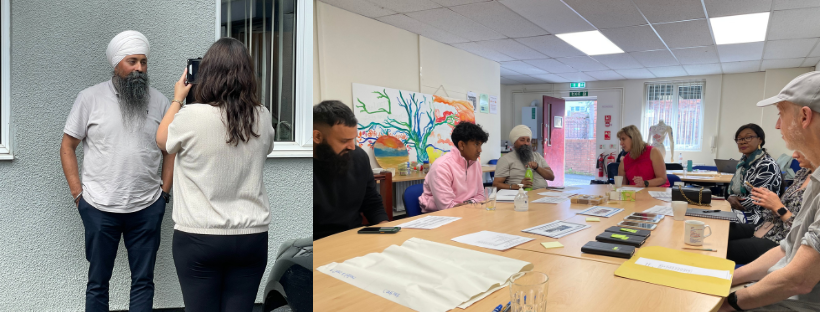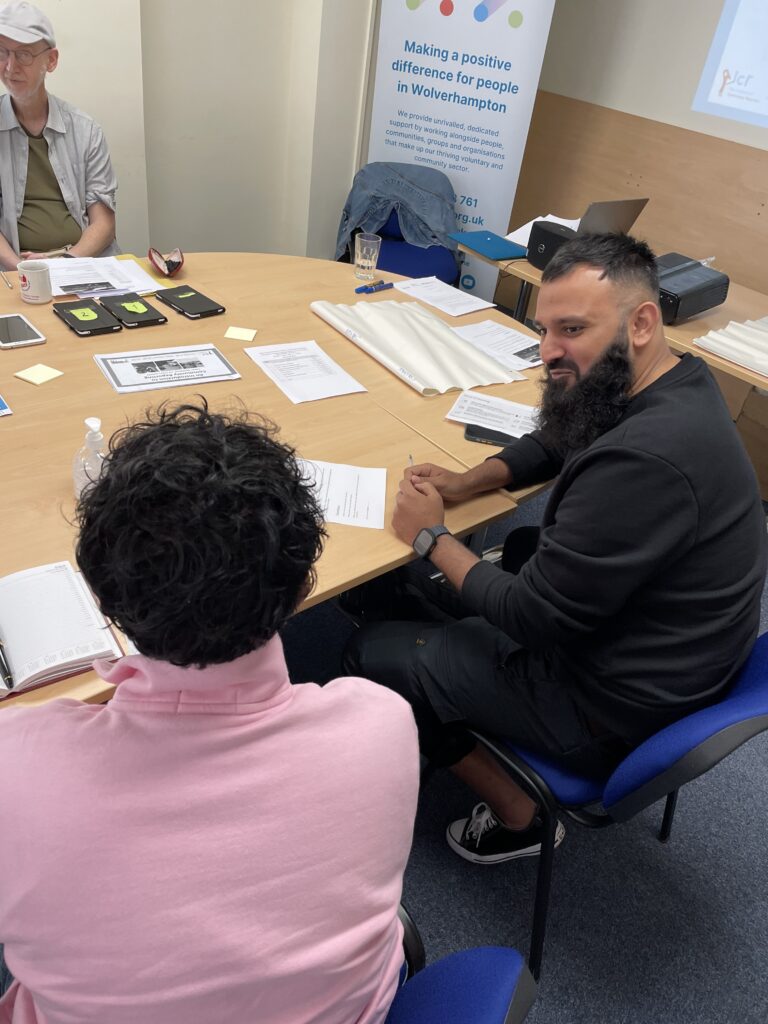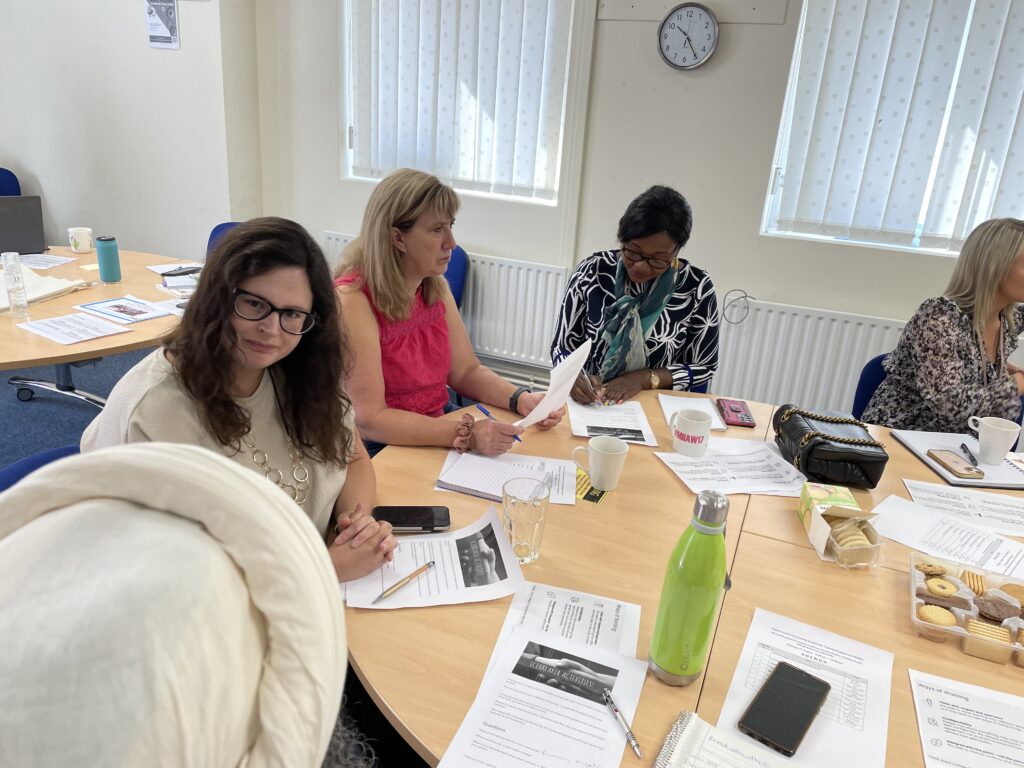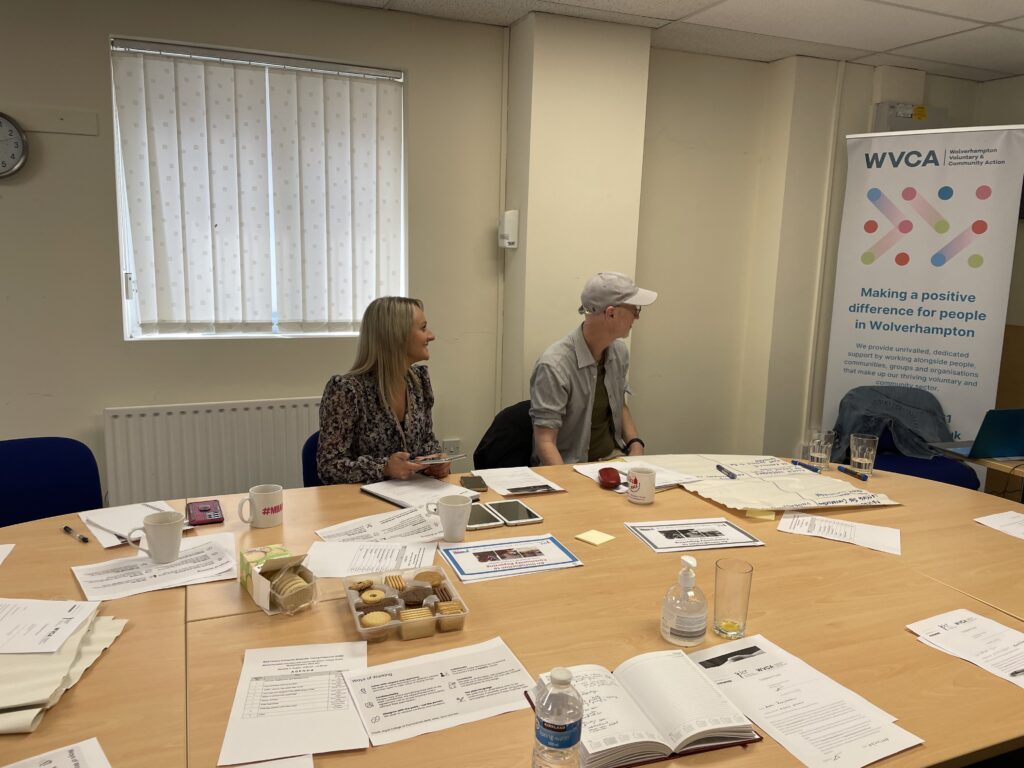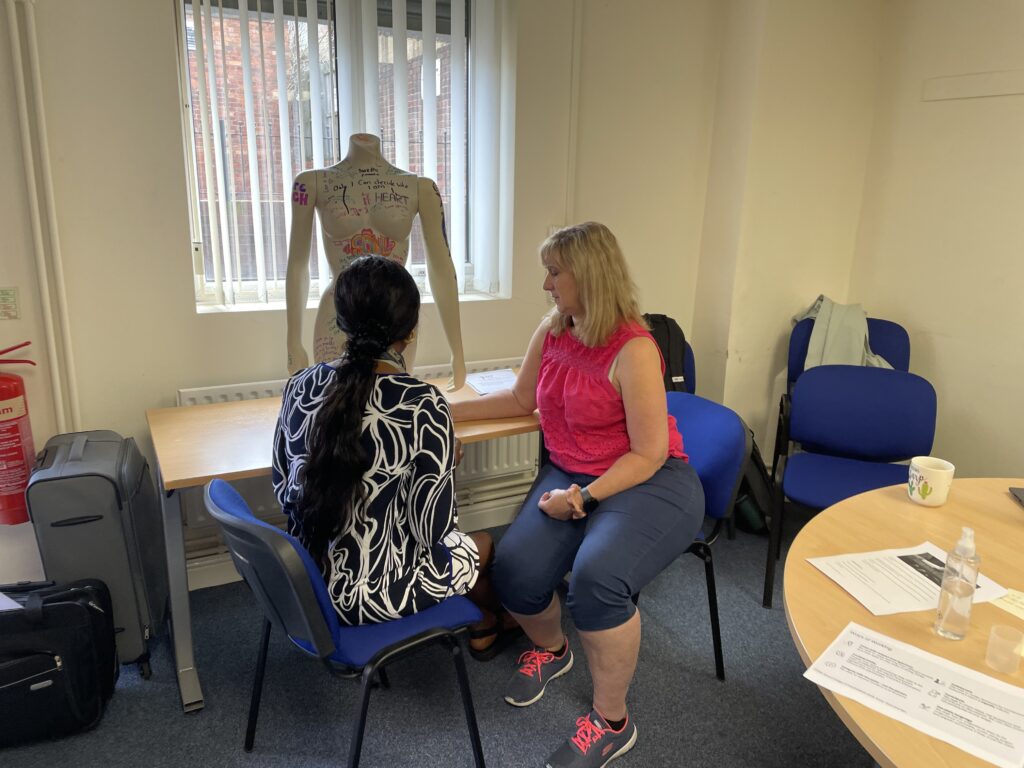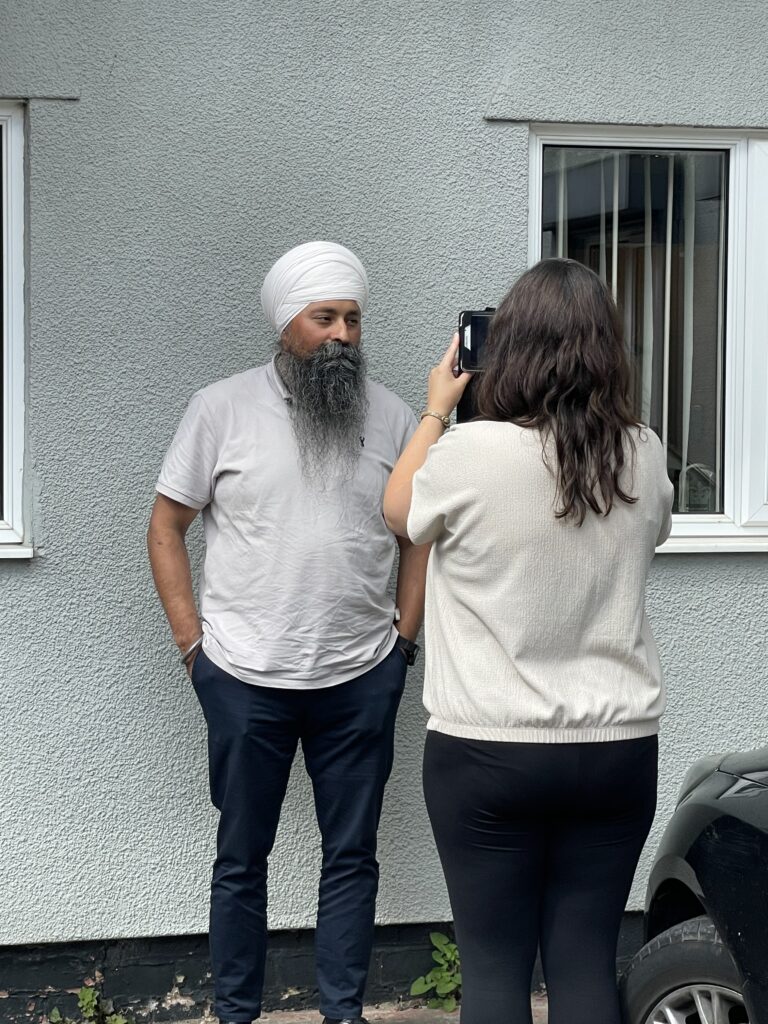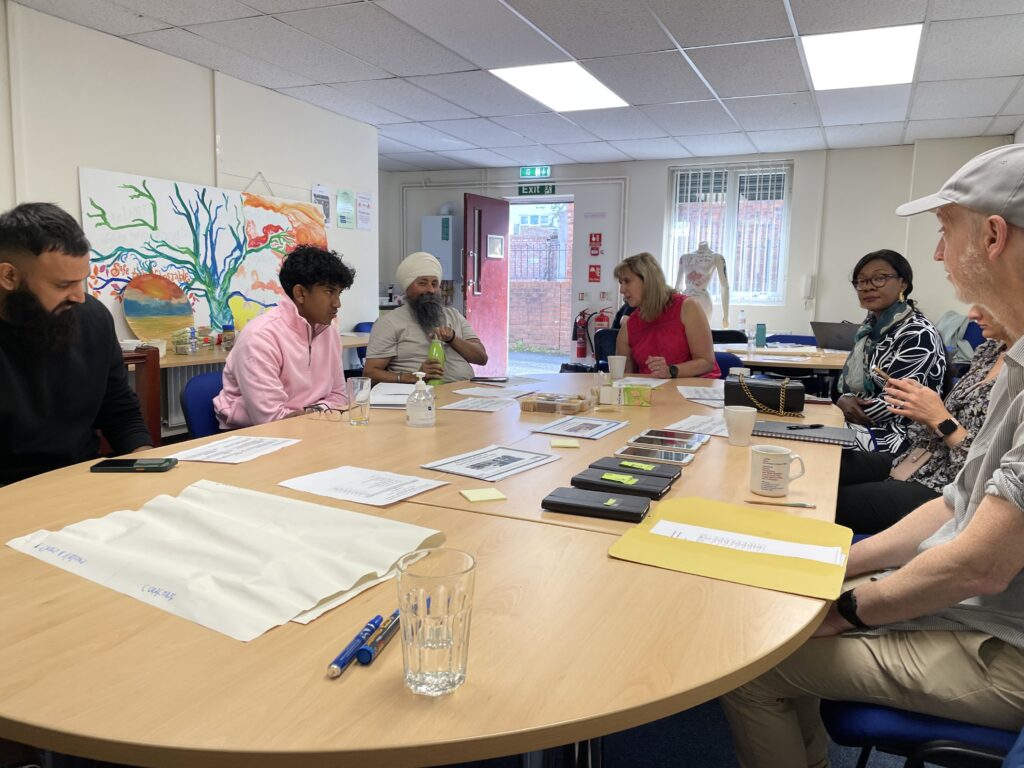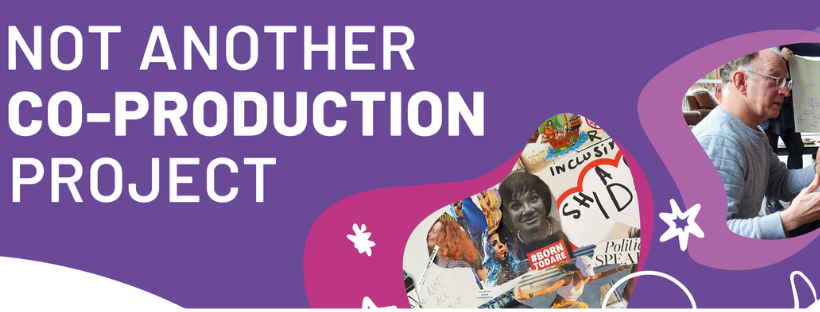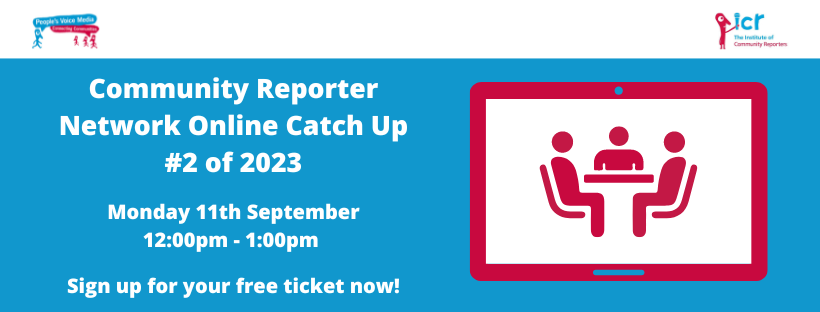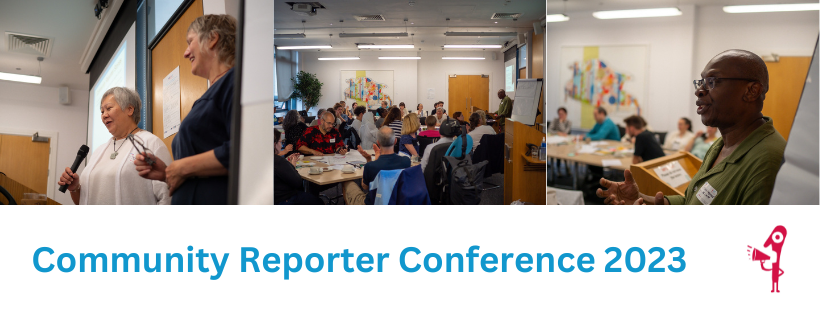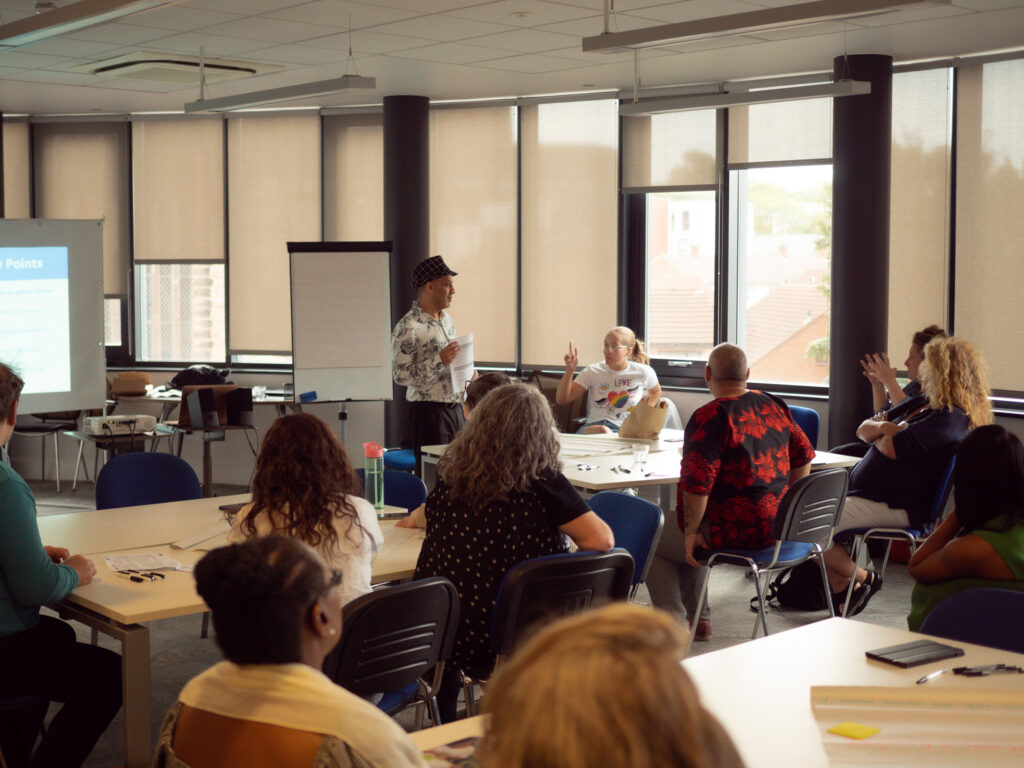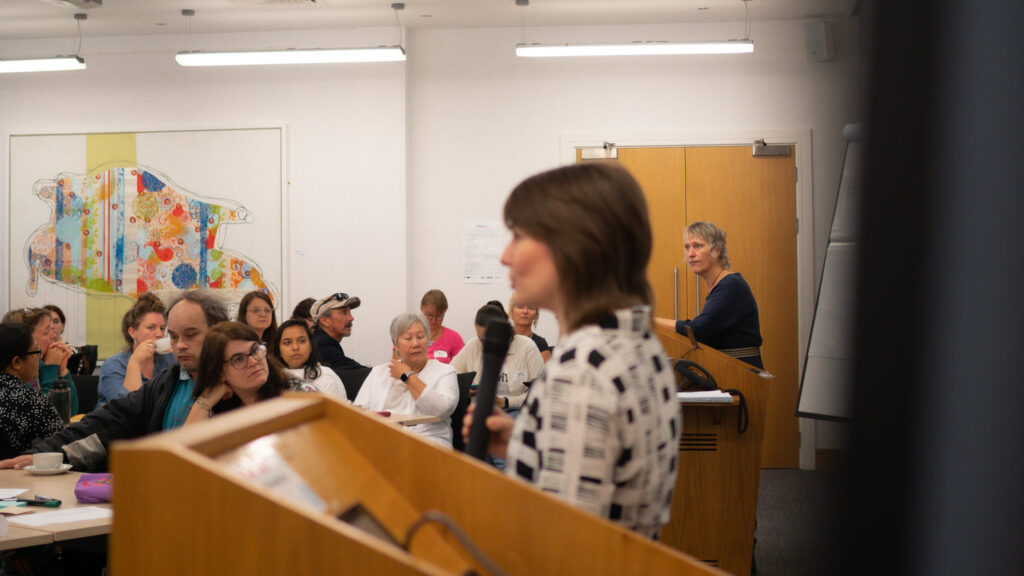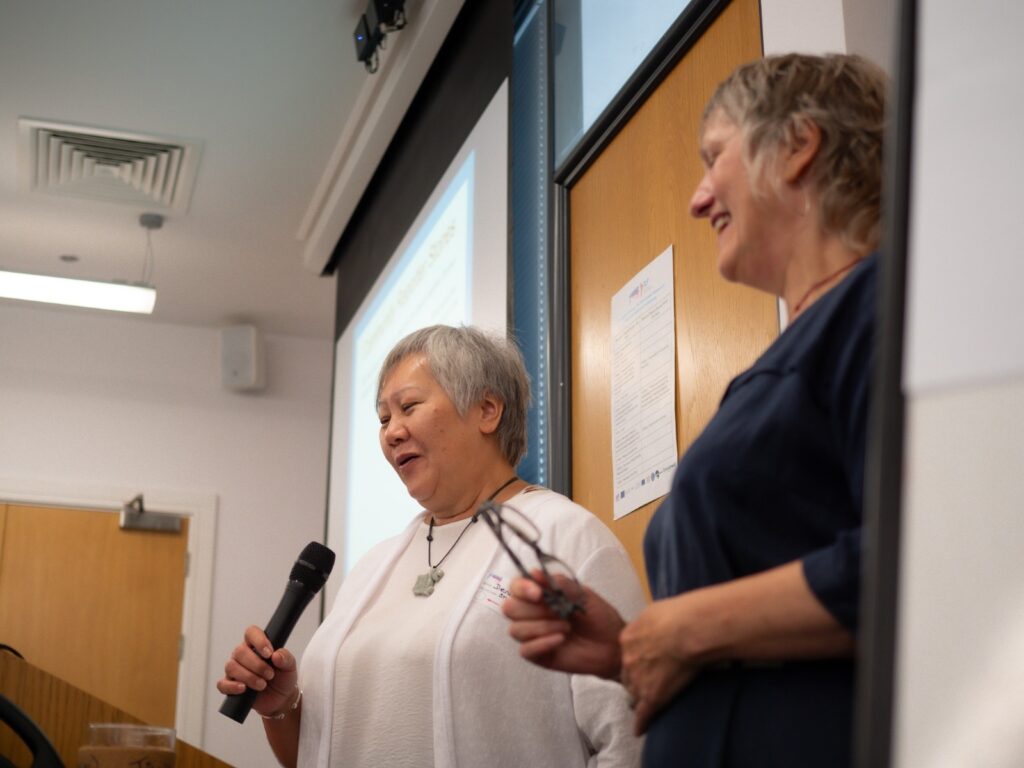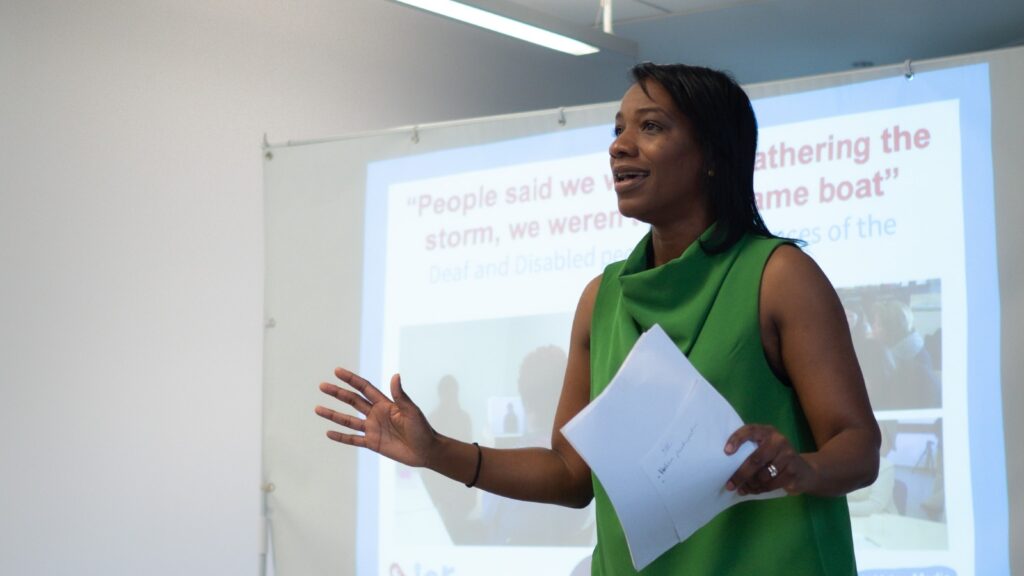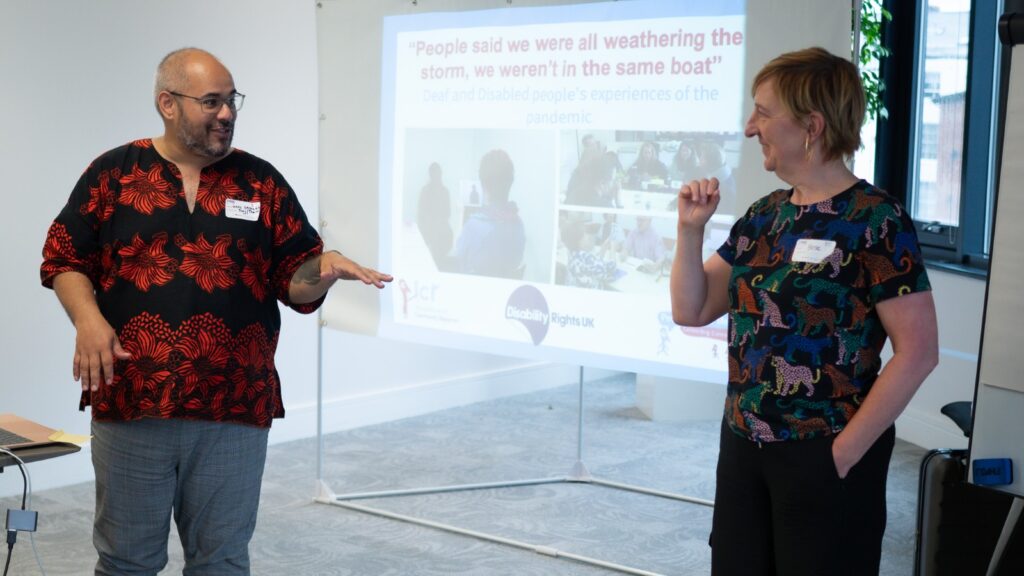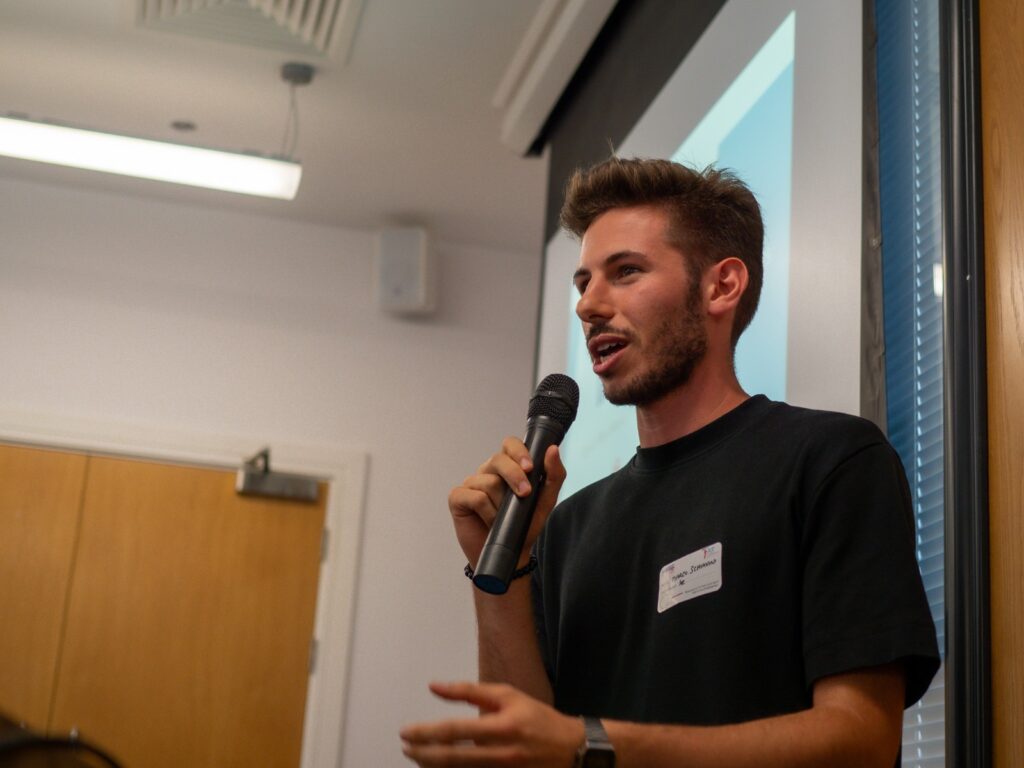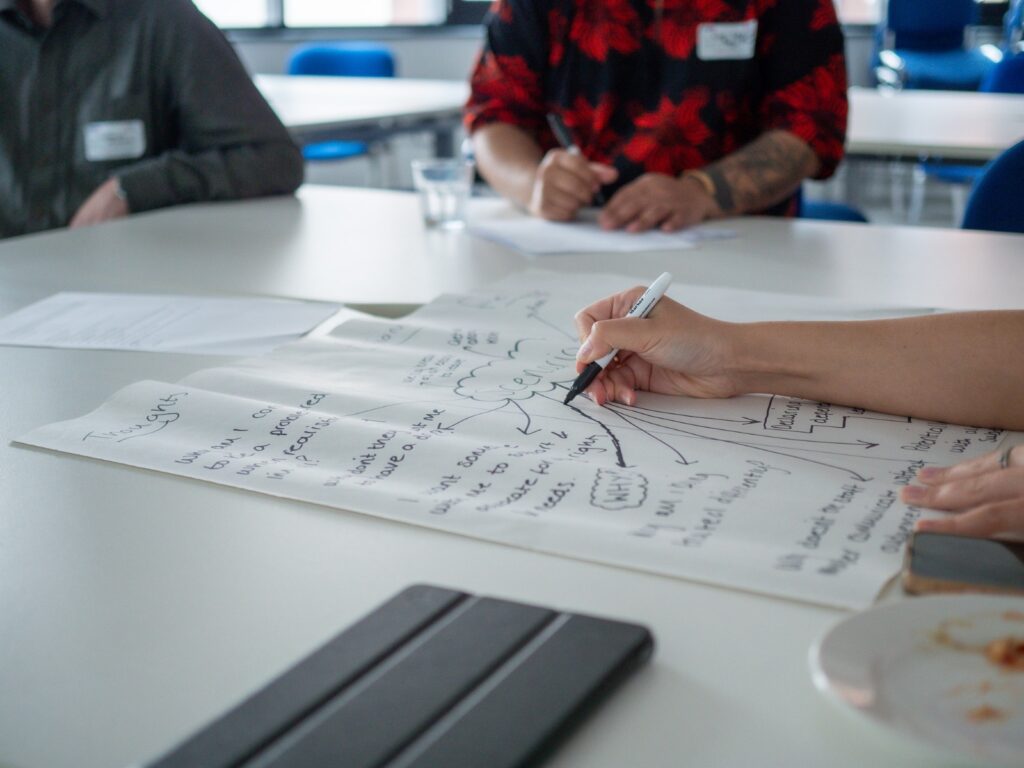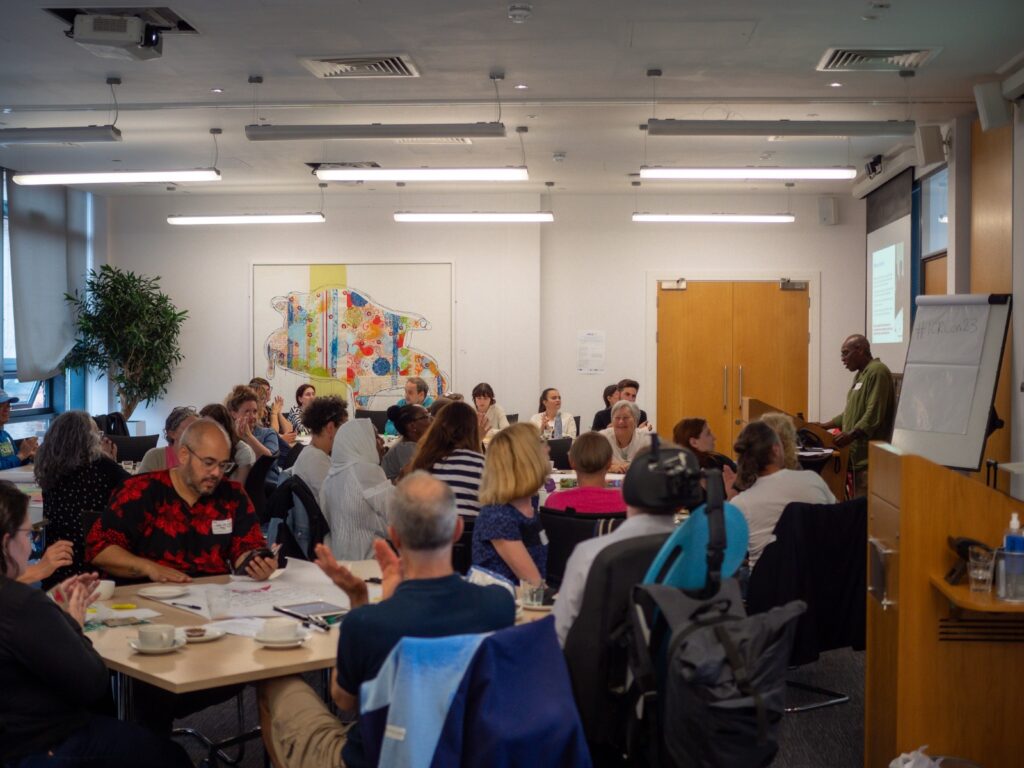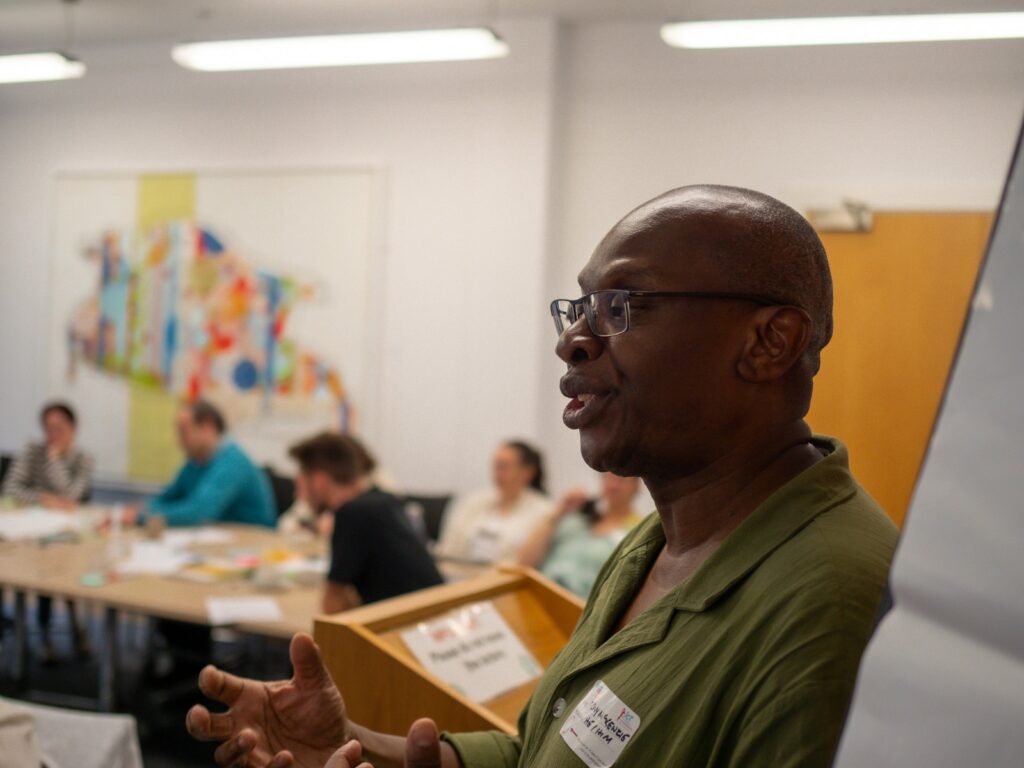HOME? Heritage Project Knowledge Exchanges Generate Interest from the Wider Community

The HOME? heritage project funded by the Heritage Lottery Fund has been focusing on the collection, curation, and dissemination of lived experiences of migrants (including refugees, people seeking asylum and other migrants) living in Northern England over the last 10 years.
In August we pulled together the feedback gathered from the 5 Knowledge Exchanges in the 5 areas during Refugee Week in June and the Pan Northern Knowledge exchange in July in Liverpool. We are now collating the feedback to create roadmaps/action plans for each area including an overarching one for the North of England.
A total of 117 people attended the Knowledge Exchanges and people in each of the areas had the opportunity to hear people’s oral histories about their lived experiences of coming to live in the UK.

The Knowledge Exchanges gave the wider community the opportunity to learn about this heritage, provoke discussion around the issues and people came up with ideas to input into a local road map/action plan that will help to –
- disseminate the learning.
- create actions that help people to develop compassion and understanding.
People said the event had inspired them to “get more involved”, “pay more attention”, “speak out more” and given them greater awareness. One expressed an intention to start volunteering. People demonstrated a shift in attitudes. One response described how they would “talk to people more positively about new migrants”, while another stated they would “be more aware of the importance to make people more aware of the similarities we share with asylum seekers, why they come and should not be a competition for resources, housing or jobs”. Another answer described how the event had left them feeling “more excited to be positive and keep working hard to adapt to life as a newcomer in the UK”. These responses show a positive personal impact on some of the attendees of the events.

The main key ideas that came up from the Knowledge Exchanges are:
- Campaigning for better rights for Migrants, Refugees, and asylum seekers – this includes the right to work, better housing, better financial help, better health support and more legal support.
- Connecting support services together more effectively.
- The need for specific trauma informed mental health support.
- Creating more activities for people to combat social isolation, especially for young men.
- Better targeted health care support for women.
- More ESOL support.
The feedback from the Knowledge Exchanges and the roadmaps will inform project resources that are being produced now, in phase 4 of the project, which is focusing on Widening Impact by producing –
- an educational toolkit – this will be a resource pack for organisations and individuals to use.
- a website – the stories, newspaper database and toolkit will be available from the website.
- a local newspaper story archive/database
- an animation – which will also be part of the toolkit and screened across the 5 areas in early 2024.
During each Knowledge Exchange there was also the opportunity for people to sign up to get involved with the project and many people have signed up. In response to this we are currently planning more Community Reporting training, Archive Research Training and Train the Trainers training that will happen from Oct through to March.

